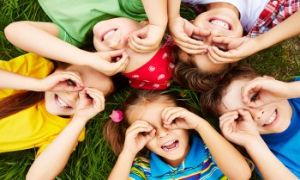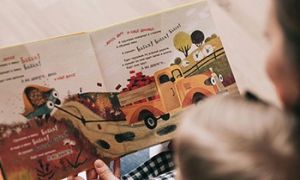The Developmental Milestones Checklist EYLF 2 to 3 Years enables Educators to link each of the milestones within the developmental domains to the EYLF Outcomes.


Experts on early childhood education have for some time believed that much more than the content of learning – like numeracy, literacy and science concepts – it is the acquiring of learning dispositions that ensure the best academic outcomes in the long run. The following article provides information on What Are Learning Dispositions, How Dispositions Change over Time and Context, Examples Of Learning Dispositions and more.
This template is to be used to detail the child's progress over the course of the year. It's great to share with families to let them know specifically how their child developed and the new skills they learnt. It can also be used as a Transition Statement for the child to be shared with the school teacher.
According to EYLF, scaffolding comprises of the educators’ decisions and actions that build on children’s existing knowledge and skills to enhance their learning. In early childhood education, this is one of the most useful learning approaches since it offers guidance when children are learning a skill or concept while also giving them enough room to think and explore on their own. The following article provides information on Scaffolding And Theory, the Benefits Of Scaffolding, the Educator's Role In Scaffolding, Strategies and more.
The EYLF explains assessment for children’s learning as the process of gathering and analysing information as evidence about what children know, can do and understand. It is a key part of an ongoing cycle that includes planning, documenting and evaluating children’s learning. And one of the most effective forms of such documentation is the learning story. The following article provides information on What Is A Learning Story, the Components Of A Learning Story, Writing A Learning Story, What To Include In A Learning Story and more.
In the early education context, assessment for learning is best practised as a “process of gathering and analysing information as evidence about what children know, can do and understand”, according to the EYLF. The approved learning framework is categorical that such assessment should be “part of an ongoing cycle that includes planning, documenting and evaluating”. Such ongoing processes lie at the heart of formative assessment practices. The following article provides information on What Is Formative Assessment Practices, Formative Assessment Regulatory Guidelines, and Benefits Of Formative Assessment and more.
The Developmental Milestones Checklist EYLF Birth to 4 Months enables Educators to link each of the milestones within the developmental domains to the EYLF Outcomes.
The Developmental Milestones Checklist EYLF 4 to 8 Months enables Educators to link each of the milestones within the developmental domains to the EYLF Outcomes.
The Developmental Milestones Checklist EYLF 8 to 12 Months enables Educators to link each of the milestones within the developmental domains to the EYLF Outcomes.
The Developmental Milestones Checklist EYLF 3 to 5 Years enables Educators to link each of the milestones within the developmental domains to the EYLF Outcomes.
The Developmental Milestones Checklist EYLF 2 to 3 Years enables Educators to link each of the milestones within the developmental domains to the EYLF Outcomes.
 Here is the list of the EYLF Learning Outcomes that you can use as a guide or reference for your documentation and planning. The EYLF… Read More
Here is the list of the EYLF Learning Outcomes that you can use as a guide or reference for your documentation and planning. The EYLF… Read More
 The EYLF is a guide which consists of Principles, Practices and 5 main Learning Outcomes along with each of their sub outcomes, based on identity,… Read More
The EYLF is a guide which consists of Principles, Practices and 5 main Learning Outcomes along with each of their sub outcomes, based on identity,… Read More
 This is a guide on How to Write a Learning Story. It provides information on What Is A Learning Story, Writing A Learning Story, Sample… Read More
This is a guide on How to Write a Learning Story. It provides information on What Is A Learning Story, Writing A Learning Story, Sample… Read More
 One of the most important types of documentation methods that educators needs to be familiar with are “observations”. Observations are crucial for all early childhood… Read More
One of the most important types of documentation methods that educators needs to be familiar with are “observations”. Observations are crucial for all early childhood… Read More
 To support children achieve learning outcomes from the EYLF Framework, the following list gives educators examples of how to promote children's learning in each individual… Read More
To support children achieve learning outcomes from the EYLF Framework, the following list gives educators examples of how to promote children's learning in each individual… Read More
 Reflective practice is learning from everyday situations and issues and concerns that arise which form part of our daily routine while working in an early… Read More
Reflective practice is learning from everyday situations and issues and concerns that arise which form part of our daily routine while working in an early… Read More
 Within Australia, Programming and Planning is reflected and supported by the Early Years Learning Framework. Educators within early childhood settings, use the EYLF to guide… Read More
Within Australia, Programming and Planning is reflected and supported by the Early Years Learning Framework. Educators within early childhood settings, use the EYLF to guide… Read More
 When observing children, it's important that we use a range of different observation methods from running records, learning stories to photographs and work samples. Using… Read More
When observing children, it's important that we use a range of different observation methods from running records, learning stories to photographs and work samples. Using… Read More
 This is a guide for educators on what to observe under each sub learning outcome from the EYLF Framework, when a child is engaged in… Read More
This is a guide for educators on what to observe under each sub learning outcome from the EYLF Framework, when a child is engaged in… Read More
 The Early Years Learning Framework describes the curriculum as “all the interactions, experiences, activities, routines and events, planned and unplanned, that occur in an environment… Read More
The Early Years Learning Framework describes the curriculum as “all the interactions, experiences, activities, routines and events, planned and unplanned, that occur in an environment… Read More

Conducting performance reviews is an effective way to recognise and reward individual educators contributions within...
See more...
The following lists the sub-outcomes, examples of evidence when children achieve each sub-outcome and how...
See more...
A recent report shared by 7NEWS Australia warns of a troubling trend: fewer Australian parents...
See more...© 2009-2025 Aussie Childcare Network Pty Ltd. All Rights Reserved.
